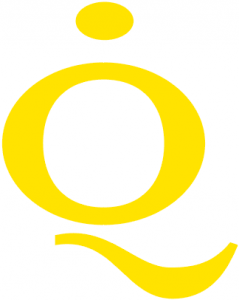IQudo ideation study 2015: game-changing new findings
By Robert Gerlach, Creativity Researcher, Coach & Author of Innovator’s High, IQudo sport of ideas.
Black box creativity
Today, creativity is the lifeblood of many companies. Whether their business is designing sneakers, inventing new appliances, or enhancing a customer service experience, companies of all kinds need to continually generate new ideas in order to stay at the cutting edge. However, many people hired specifically to be creative, find that they simply don’t have ideas while at work. Why is this? Many people think that mental blocks arise due to stress or time pressure. There is another commonly-held belief that people need the right physical surroundings to fuel their creative fires. But, what if the true key to thriving creativity is something else entirely?
IQudo ideation study, San Francisco 05/2015
To determine where, when and how creativity thrives, we interviewed 502 people from a cross-section of professions in San Francisco’s financial and entrepreneurial district South of Market. The survey‘s key findings were the following:
418 (83.7%) of the 502 respondents said they have their best ideas away from the workplace, outside working hours. For these respondents, time seems to be a crucial factor in not having their best ideas in the workplace. When asked, why don’t you have your best ideas on the job, the “job-uninspired” cited the following reasons (Multiple answers possible):
- Too many distractions 47.1
- No time 28.2
- Too focused 26.9
- Stress 24.3
- No creative atmosphere 18.6
- Other* 11.7
- Not enough fun activities 7.0
- Not required 5.1
* “Other” reasons included lack of stimulation, passion, freedom, collaboration, and fun.
Three out of the top four reasons they gave were related to time constraints, such as too many distractions, no time, and stress. This finding bears out studies by Harvard1 and Adobe2 showing that time is seen as a barrier to creativity.
Inspiring co-workers: #1 reason for on-the-job creativity
However, 16.3 percent of respondents (one in six) said that they do, in fact, get their best ideas on the job. Surprisingly, for most of the 84 respondents, time plays a minor role; almost half of the “job inspired” (47.7) cite “inspiring co-workers” as the number one reason for their on-the-job creativity. The second highest factor is “creative atmosphere” (29.1) and then “creativity is required.” (27.9). “Time to ponder” came in fourth place (20.9). (Multiple answers possible):
- Inspiring co-workers 47.7
- Creative atmosphere 29.1
- Creativity is required 27.9
- Time to ponder 20.9
- Other* 18.6
- Not an office worker 1.2
* “Other” reasons of the job-inspired included being passionate about the work and being able to focus.
The office: A place to have the best ideas
The survey results show, above all, that some people do actually have their best ideas on the job, despite time pressure. Simone Lendzian, the Corporate Communication Manager, from Adidas says, that right before the new collections are being presented, the designers have to create new designs under massive time pressure. According to Dörte Spengler-Ahrens, Executive Creative Director of Jung/vonMatt, Hamburg, Germany (No. 1; W&V creative ranking 2014) ideas arise on the job: Simply because it’s a place where you can concentrate and are not as easily distracted. Oliver Voss, Head of Creation of OliverVoss Hamburg, states that a lot of ideas and concepts arise between 9 am and 6 pm.
Lack of time is overrated
The job-inspired are creative at the workplace despite all its distractions, and for them, time pressure is not a major deterrent. This suggests that time as a factor in creativity may be overrated. Some experts have even concluded that instead of impeding it, time pressure actually boosts creativity. For instance, Alexander Schill, Chief Creative Officer of Serviceplan, one of Germany‘s top 3 creative agencies (No. 2; W&V creative ranking 2014), believes that time pressure is beneficial to creativity because it helps people focus on the things that matter. Going further, Oliver Voss, one of the world’s top leading creatives in advertising, says:
“You are not creative despite lack of time, but because of it. Time pressure helps you to concentrate and focus on work.”
Creativity happens in the gap
What matters most for the job-inspired is their ability to inspire and be inspired by their co-workers. Therefore, to get creative juices flowing, leaders are better off providing a culture where people can inspire by each other, instead of focusing primarily on plush interiors. What drives creativity in startup garages is mutual trust and shared passion among the people involved – plus the fact that creativity is required for the company’s survival and growth. The garage example illustrates the point that in relation to making creativity thrive the quality of the human interaction by far outweighs other variables that may at first seem significant. Stefan Kolle, Head of Creation at Kolle Rebbe, a top communications agency based in Hamburg, Germany, says that the culture in his agency is free from fear and is based on one thing above all else; collaboration. Kolle refers to a sentence he has heard once that he believes hits the nail on the head, ‘We help each other to be great.’ Kolle exclaims: That’s exactly what it’s all about. Thus, when colleagues who have a corresponding creative spark interact, together they fuel the creative fire.
The need for a paradigm shift
The IQudo findings may have major implications for companies of all kinds and how they approach creativity, and may well signal the need for a paradigm shift. The survey findings shift some of the weight for producing ideas from employees to leaders.
It is up to leaders to foster collaborative relationships, establish a creative atmosphere, demand creativity and provide limited time to ponder.
Footnotes
1 Time Pressure and Creativity in Organizations: A Longitudinal Field Study, Amabile et al., 2002: “Although time pressure likely has negative effects on creative processing even at moderate levels, this study suggests that its effects may be disproportionately worse at extreme levels. Quite simply, extremely high time pressure may engender cognitive strategies that allow no time to think creatively. Rather than jolting people into producing a creative insight, it may instead make that insight all the more elusive.”
2 Study Reveals Global Creativity Gap. Adobe®, April 23, 2012: The study reveals a workplace creativity gap, where 75% of respondents said they are under growing pressure to be productive rather than creative, despite the fact that they are increasingly expected to think creatively on the job. Across all of the countries surveyed, people said they spend only 25% of their time at work creating. Lack of time is seen as the biggest barrier to creativity (47% globally: the United Kingdom, Germany, France, and Japan, 52% in the United States).




